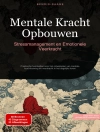‘Clinical Perspectives on Meaning: Positive and Existential Psychotherapy . . . is an outstanding collection of new contributions that build thoughtfully on the past, while at the same time, take the uniquely human capacity for meaning-making to important new places.’ – From the preface by Carol D. Ryff and Chiara Ruini
This unique theory-to-practice volume presents far-reaching advances in positive and existential therapy, with emphasis on meaning-making as central to coping and resilience, growth and positive change. Innovative meaning-based strategies are presented with clients facing medical and mental health challenges such as spinal cord injury, depression, and cancer. Diverse populations and settings are considered, including substance abuse, disasters, group therapy, and at-risk youth. Contributors demonstrate the versatility and effectiveness of meaning-making interventions by addressing novel findings in this rapidly growing and promising area. By providing broad international and interdisciplinary perspectives, it enhances empirical findings and offers valuable practical insights. Such a diverse and varied examination of meaning encourages the reader to integrate his or her thoughts from both existential and positive psychology perspectives, as well as from clinical and empirical approaches, and guides the theoretical convergence to a unique point of understanding and appreciation for the value of meaning and its pursuit.
Included in the coverage:
· The proper aim of therapy: Subjective well-being, objective goodness, or a meaningful life?
· Character strengths and mindfulness as core pathways to meaning in life
· The significance of meaning to conceptualizations of resilience and posttraumatic growth
· Practices of meaning-making interventions: A comprehensive matrix
· Working with meaning in life in chronic or life-threatening disease
· Strategies for cultivating purpose among adolescents in clinical settings
· Integrative meaning therapy: From logotherapy to existential positive interventions
· Multiculturalism and meaning in existential and positive psychology
· Nostalgia as an existential intervention: Using the past to secure meaning in the present and the future
· The spiritual dimension of meaning
Clinical Perspectives on Meaning redefines these core healing objectives for researchers, students, caregivers, and practitioners from the fields of existential psychology, logotherapy, and positive psychology, as well as for the interested public.
विषयसूची
Clinical Perspectives on Meaning: Positive and Existential Psychotherapy.- Part I: Understanding: Contexts, objectives and considerations.- The Proper Aim of Therapy: Subjective Well-being, Objective Goodness, or a Meaningful Life?.- Seeing Life through a Sacred Lens: The Spiritual Dimension of Meaning.- Working with Meaning in Life in Mental Health Care: A Systematic Literature Review and Meta-Analyses of the Practices and Effectiveness of Meaning-Centered Therapies.- Making Meaning in the Context of Ethnopolitical Warfare: Secondary Control as a Resource.- Multiculturalism and Meaning in Existential and Positive Psychology.- Practices of Meaning-Changing Interventions: A Comprehensive Matrix.- Part II: coping: Integrative meaning-oriented perspectives and interventions for human coping.- The Significance of Meaning to Conceptualizations of Resilience and Posttraumatic Growth: Strengthening the Foundation for Research and Practice.- Working with Meaning in Life in Chronic or Life-Threatening Disease: A Review of its Relevance and the Effectiveness of Meaning-Centered Therapies.- Meaning in Life in the Prevention and Treatment of Substance Use Disorders.- Reason, Meaning and Resilience in the Treatment of Depression: Logotherapy as a Bridge Between Cognitive-Behavior Therapy and Positive Psychology.- Meaning-Centered Psychotherapy in the Oncology and Palliative Care Settings.- Meaning-Making in the Aftermath of a Spinal Cord Injury.- Out, Out Brief Candle? The Meaning of Meaninglessness.- Part III: Thriving: Integrative meaning-oriented perspectives and interventions for human thriving.- Meaning, Medicine and Healing.- Integrative Meaning Therapy: From Logotherapy to Existential Positive Interventions.- Nostalgia as an Existential Intervention: Using the Past to Secure Meaning in the Present and the Future.- Caring and Meaning in Psychotherapy.- Character Strengthsand Mindfulness as Core Pathways to Meaning in Life.- Strategies for Cultivating Purpose Among Adolescents in Clinical Settings.- Meaning-Centered Positive Group Intervention.
लेखक के बारे में
Pninit Russo-Netzer, Ph.D. is a researcher at the department of Counseling and Human Development, University of Haifa. Her main research and practice interests focus on meaning in life, positive psychology, spirituality and spiritual development, positive change and growth. Dr. Russo-Netzer is a practitioner of positive psychology, a logotherapist (Diplomate Clinician) and the chairperson of the Logotherapy Association in Israel. She serves as academic advisor and consultant to both academic and non-academic institutions, conducts workshops and develops training programs and curricula for various organizations on logotherapy, meaning in life, positive psychology, resilience and spirituality.
Stefan E. Schulenberg (Ph.D., Clinical Psychology-Clinical/Disaster Specialty Track) is a licensed psychologist in the state of Mississippi, a Professor in the University of Mississippi’s Psychology Department, and a Diplomate in Logotherapy. Dr. Schulenberg serves as the Director ofthe University of Mississippi’s Clinical-Disaster Research Center (UM-CDRC), an integrated research, teaching, and training center with emphases in disaster mental health and positive psychology. His research interests include clinical-disaster psychology, perceived meaning/purpose in life, positive psychology, and psychological assessment. He conducts workshops and provides training on disaster preparedness, psychological first aid, disaster response, meaning/purpose in life, resilience, and posttraumatic growth.
Alexander Batthyany holds the Viktor Frankl Chair for Philosophy and Psychology at the International Academy of Philosophy in the Principality of Liechtenstein. He teaches theory of Cognitive Science at Vienna University’s Cognitive Science Program and Logotherapy and Existential Analysis at the Department of Psychiatry at Vienna Medical School. Since 2012, Batthyany is Visiting Professor for Existential Psychotherapy at the Moscow University Institute of Psychoanalysis. He is director of the Viktor Frankl Institute and the Viktor Frankl Archives in Vienna and first editor of the 14-volume Edition of the Collected Works of Viktor Frankl. Batthyany has published several books and articles. His works have been translated into more than ten languages. Batthyany lectures widely on philosophical and existential psychology, philosophy of mind, and theory of cognitive science.












